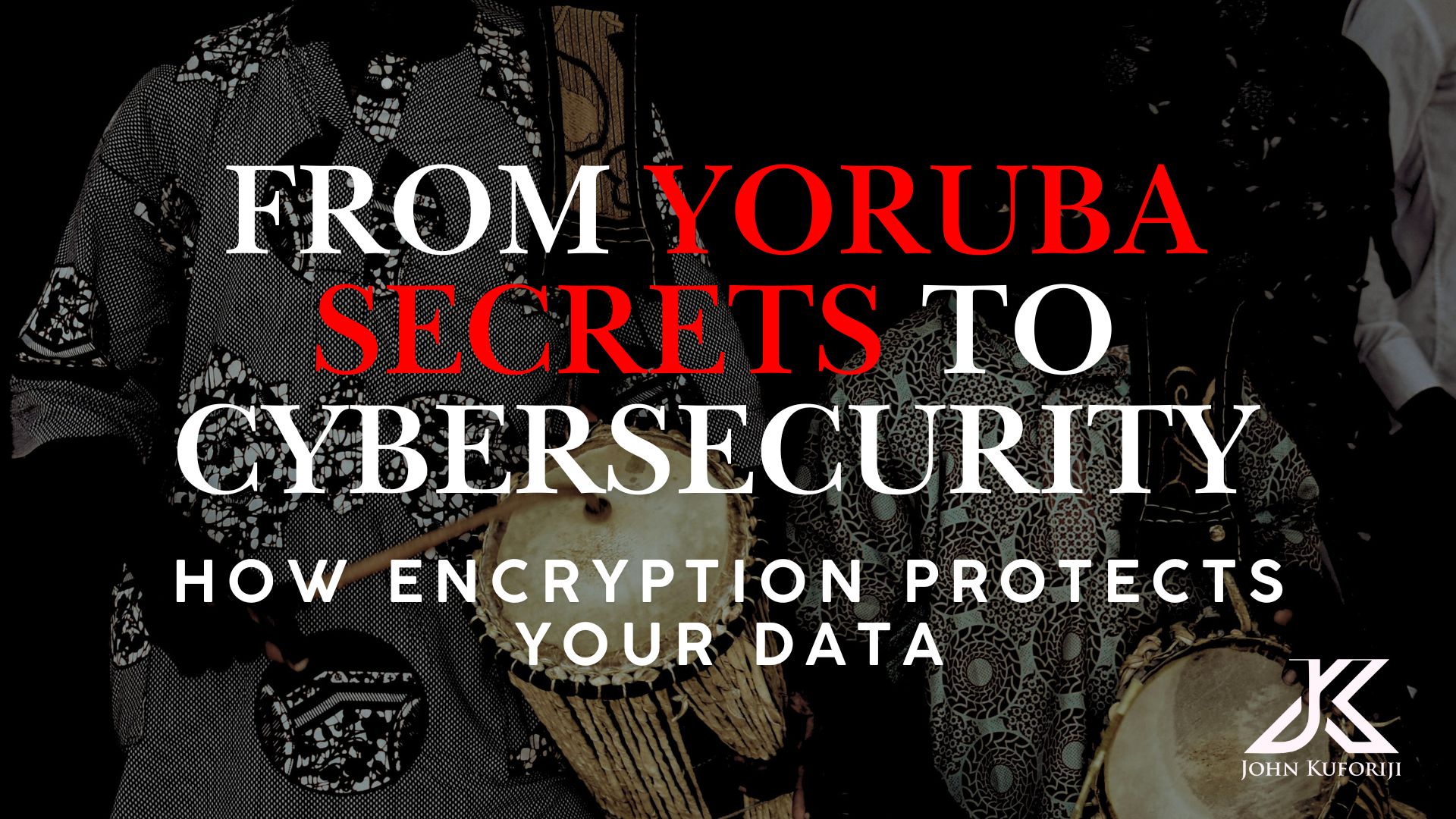
I am a proud Yoruba, and I take every opportunity to share the greatness of my people. The Yoruba are a people of innovation, wisdom, and mastery of communication. Our history is rich with examples of how we have used coded speech, proverbs, talking drums, and secret slangs to protect knowledge, maintain secrecy, and ensure that information does not fall into the wrong hands.
Centuries before the digital age, our ancestors already understood a fundamental cybersecurity principle: “Not all ears that hear should understand.”
In today’s world, this ancient wisdom takes the form of encryption, which protects digital data the same way the Yoruba protected their secrets.
Why Encryption Matters: The Digital Guardian of Our Data
In modern cybersecurity, encryption serves as a powerful shield that ensures:
✅ Confidentiality– Keeps data private and hidden from unauthorized users.
✅ Integrity– Ensures that data remains unchanged and has not been tampered with.
✅ Authentication– Verifies the identity of users and systems.
✅ Non-Repudiation – Prevents users from denying their actions.
Much like how the Yoruba used coded language to protect their messages, encryption prevents hackers, cybercriminals, and spies from accessing sensitive information.
Let’s explore how encryption benefits us in the digital age while linking it back to the Yoruba tradition of secrecy and coded speech.
1. Encryption Protects Personal Privacy
Imagine a time when a Yoruba elder wanted to give private advice to a trusted warrior. He wouldn’t say it out loud for everyone to hear. Instead, he might use a proverb or an indirect message that only the warrior would understand.
In modern times, we rely on encryption to ensure that our private conversations, financial details, and health records remain confidential.
Example:
📌 WhatsApp uses End-to-End Encryption (E2EE) – This ensures that only the sender and recipient can read a message. Even if a hacker intercepts it, they see only scrambled data, just like an outsider who overhears a Yoruba proverb without knowing its meaning.
2. Encryption Secures Financial Transactions
In the old Yoruba kingdoms, traders in the market used Àró (a secret speech pattern) to hide their pricing discussions from customers and competitors.
Today, banks and online payment platforms use encryption to protect money transfers and card transactions from fraudsters and hackers.
Example:
📌 Credit card transactions use AES encryption to prevent criminals from stealing your banking information. Even if someone intercepts your data, it is useless without the decryption key—just as an outsider cannot understand Àró speech without knowing the pattern.
3. Encryption Prevents Cyber Attacks and Data Breaches
Just as Yoruba warriors used secret battle strategies to prevent enemies from predicting their next move, businesses and governments use encryption to safeguard sensitive data from cybercriminals.
Example:
📌 Encrypted databases protect customer records – If a hacker tries to steal data from a company, they only get meaningless, encrypted text, making the stolen information useless without the key.
This is why companies like Google, Microsoft, and Amazon Web Services (AWS) use strong encryption to prevent cybercriminals from accessing sensitive data.
4. Encryption Ensures Safe Cloud Storage and Communication
In Yoruba tradition, Oriki (praise poetry) serves as an unchangeable identity—just as hashing in cybersecurity ensures data integrity.
Example:
📌 Cloud storage services like Google Drive and Dropbox use encryptionto protect files from unauthorized access.
📌 Hashing (SHA-256) ensures passwords remain secure, preventing hackers from reversing them back to plain text.
Just as Yoruba Oriki cannot be reversed back to a simple name, encrypted passwords cannot be cracked without extensive computing power.
5. Encryption Protects National Security
Throughout Yoruba history, secret societies like the Ogboni used coded language, symbols, and rituals to protect their sacred knowledge. In the modern world, governments and military forces use encryption to secure national intelligence, military strategies, and diplomatic communications.
Example:
📌 The U.S. government uses AES-256 encryption to protect classified data, ensuring that even if hackers steal information, they cannot decrypt it.
This is no different from how Yoruba secret societies kept their rituals and knowledge protected—ensuring that only those with the right keys could access sacred wisdom.
Conclusion: The Yoruba Legacy of Encryption Lives On
The Yoruba people have always understood the importance of protecting information from outsiders. Whether through Àró, Proverbs, Talking Drums, or Secret Slangs, our ancestors ensured that only the right people could understand their messages.
Today, encryption serves the same purpose—protecting our private conversations, financial transactions, business secrets, and even national security from cyber threats.
🚀 Next time you hear about encryption, remember—it’s not just a modern invention. It’s an ancient Yoruba skill, reborn in the digital age!
And as a proud Yoruba, I will continue to share the amazing things about my people with the world. Our culture is filled with wisdom, innovation, and timeless knowledge—and I am honored to carry that legacy forward.
